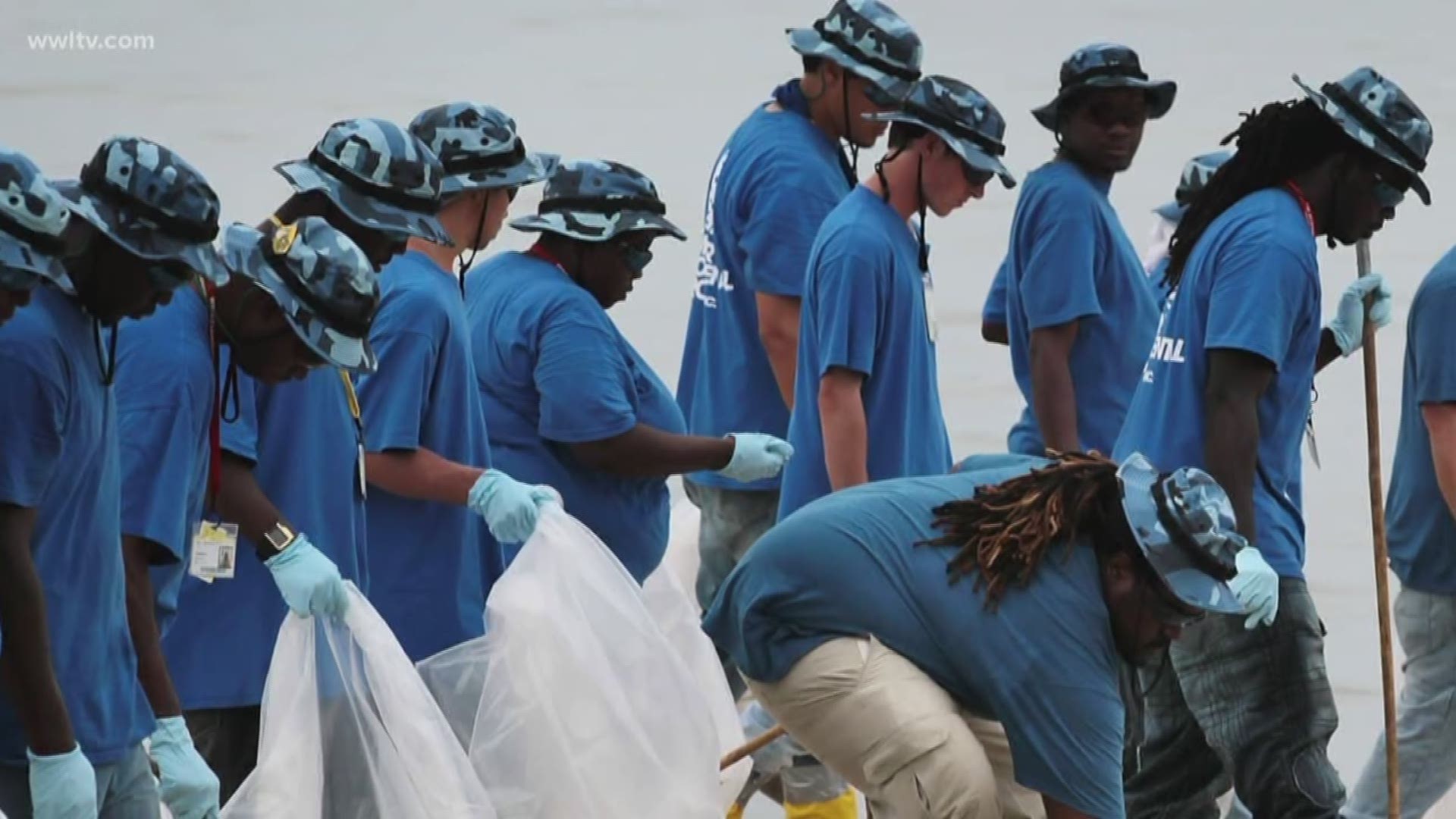In the sea of fines, fees and compensation BP has paid to individuals, businesses, governments and lawyers for its 2010 oil spill, one group of claimants stands out for missing out on the billions.
On the eighth anniversary of the Deepwater Horizon rig explosion that set off the worst oil spill in U.S. history, thousands of workers BP hired to clean up its mess say exposure to oil and chemicals made them sick. About 22,700 of them have been paid under a 2012 class-action settlement, but the average claim paid about $2,940.
And thousands of other medical claimants are still awaiting their day in court.
That includes Tiffany Odoms, the widow of cleanup worker Alonzo Odoms, who was exposed to oil and cleaning chemicals on a shrimp boat near Dulac and died four years later of multiple myeloma. Tiffany said doctors said the cancer came from an exposure to chemicals, which she said he never was as a barber.
Alonzo Odoms filed a claim when he got sick, and Tiffany Odoms is now pursuing it as a wrongful death claim as she raises their daughter A’loni.
“It’s not right, to hear my baby cry,” she said. “Still cry, every night and wonder why she can’t go to heaven and visit her dad.”
Another claimant is shrimper George Barisich. He received compensation for his seafood business losses under a separate settlement, and he filed a claim for a chronic illness from exposure to the oil and chemical dispersants used to break up oil particles in the Gulf.
“There’s no justice here for people who actually worked, went out there to clean up their mess, and this is what we got for it: Not too good of a thank you, I don’t believe,” Barisich said.
Claimants and their allies, led by Retired Lt. Gen. Russel Honore, delivered a petition with 25,000 signatures to the federal court in New Orleans on Friday, asking U.S. District Judge Carl Barbier to move long-stagnant medical claims forward.
“On this 20th day of April, we reflect with sadness on those who lost their lives and we brush shoulders with those trying to stay alive as a result of the dispersants and the chemicals and the unprotected workers who worked to clean up our shores,” Honore said outside the federal courthouse.
Of the 22,700 medical claimants paid under the settlement so far, only 40 of them qualified for $60,700 payments available to those who could prove the spill caused them to have chronic illnesses.
The medical claims settlement administrator, Matt Garretson of Garretson Resolution Group in Cincinnati, estimated his fees from BP at $115 million to $120 million. That’s nearly twice as much as the $67.8 million he’s paid out to claimants over the last six years.
If the medical settlement had played out the way plaintiffs expected in 2012, it might have paid more than $1 billion to tens of thousands of claimants.
But that was short-circuited in 2014, when U.S. District Judge Carl Barbier made a decision – reluctantly, according to his comments from the bench -- that rendered the settlement essentially moot for an estimated 20,000 claimants.
It all boiled down to the interpretation of two words: “manifested” and “diagnosed.”
The original medical claims settlement set aside a separate litigation process for what were called “Later-Manifested Physical Conditions.” Lead class plaintiffs’ attorney Steve Herman said that was supposed to refer to cancer and other conditions that don’t show up for years after the exposure.
Instead, the settlement defined “later-manifested physical conditions” as any conditions “diagnosed” after April 16, 2012, regardless of when the condition actually manifested, or appeared. That meant people who got sick right away while cleaning up the oil during 2010 and 2011, but didn’t get an official doctor’s diagnosis until mid-2012 or later, were relegated to fighting separate cases, first in mediation with BP and then in court.
The latest report from Garretson shows BP has not agreed to pay a single one of those claims in mediation. Herman said the first of the court cases are now starting to be heard.
Garretson said he is simply implementing the settlement as it was written, but Herman said that’s not what the plaintiffs’ negotiating team intended. That leaves claimants angry at both of them and pointing out that they are getting huge paydays out of the settlement.
Herman’s law firm and that of his co-lead counsel, Jim Roy, were each awarded $87 million in fees from BP. That’s on top of any fees they collected from their individual clients, which could be up to 25 percent of their claims payouts. In all, about two dozen plaintiffs’ law firms split $679 million in fees for negotiating settlements with BP totaling $13 billion and with BP’s drilling contractors for another $1.25 billion.
Garretson, meanwhile, has also approved $105 million in grants to Gulf Coast community-based health organizations, which are expected to help some of the claimants get better medical care. Claimants can also participate in free ongoing clinical screenings as a part of the settlement Garretson runs.

